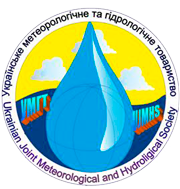Agroclimatic zoning of the northern grain-producing territory of Kazakhstan
Abstract
Introduction. The existing agroclimatic handbooks in Kazakhstan are outdated in informational and technological relation. Therefore it is necessary to conduct reassessment of agroclimatic resources.
Purpose. The agroclimatic zoning of the territory of northern Kazakhstan in terms of heat supply and moisture content.
Methods. Data of meteorological stations over 1981-2014 were used. Methods of statistic and climatologic processing of data were applied. Agroclimatic maps were developed using the ArcGIS 10.1 software.
Results. Analysis of spatial distribution of values of moisture coefficient K and sums of active air temperatures above 10оC provided an opportunity to single out 6 agroclimatic zones of plain territory of Kazakhstan. Zones from 3 to 6 are subdivided into two types in terms of thermal conditions. There are 3 agroclimatic zones singled out within the territory of North Kazakhstan Region, 4 zones – in Kostanai region, 4 zones – in Akmola region, 2 zones – in Pavlodar region. Distribution of drought characteristics, hot dry winds and climatic terms for beginning of spring field works within Akmola region's agroclimatic zones was given as an example for systematization of spatial distribution of respective values.
The first zone with moderately humid and moderately warm climate has severe droughts with recurrence of 2%, hot winds of moderate intensity are observed during 2-3 days, climatic terms for beginning of spring field works fall on 15th-19th of May. The fourth zone with moderately dry and warm climate has severe droughts with recurrence of 30-35%, hot winds of moderate intensity are observed during 20-25 days, climatic terms for beginning of spring field works fall on 5th-7th of May.
Conclusions. There are 3 agroclimatic zones singled out within the territory of North Kazakhstan Region, 4 zones – in Kostanai region, 4 zones – in Akmola region, 2 zones – in Pavlodar region.
References
2. Mischenko Z. A. Agroklimatologiya [Agroklimatology]. Kiev: KNT, 2009. 512 p.
3. Grigoruk V. V., Ayulov A. M., Dolgikh S. V., Baisholanov S. S. Akmolinskaya oblast: klimat i urozhay [Akmola region: climate and harvest]. Almatyi, 2012. 88 p.
4. Baisholanov S. S., Polevoy A. N. The assessment of the moisture providing of vegetation period in northern grain-seeding territory of Kazakhstan. Physical geography and geomorphology. Scientific collections. Kyyiv: T. Shevchenko National University of Kiev, 2016, vol. 3(83), pp. 95-102. (In Russian)
5. Losev A. P. Praktikum po agroklimaticheskomu obespecheniyu rastenievodstva [Workshop on agroclimatic security crop]. St-Pb.: Gidrometeoizdat, 1994. 243 p.
6. Gordeev A. V., Kleshchenko A. D., Chernyakov B. A., Sirotenko O. D. Bioklimaticheskiy potentsial Rossii: teoriya i praktika [Bioclimatic potential of Russia: Theory and Practice]. Moscow: Association of scientific editions KMK, 2006. 512 p.

This work is licensed under a Creative Commons Attribution 4.0 International License.






